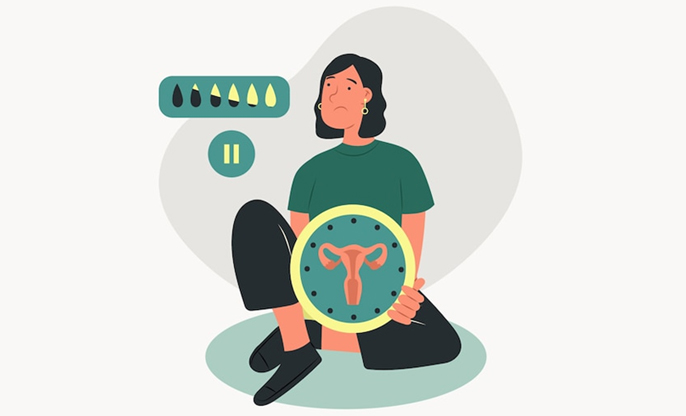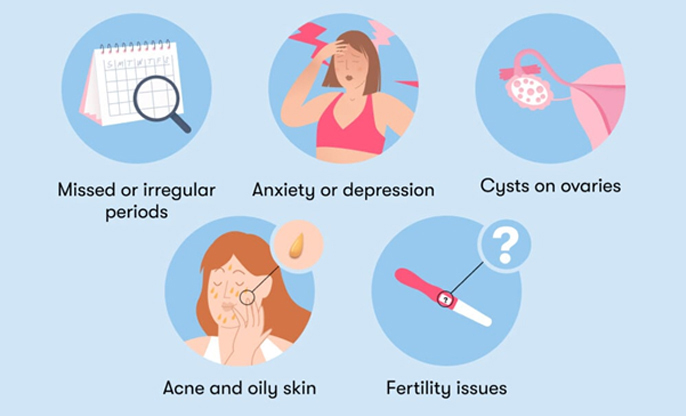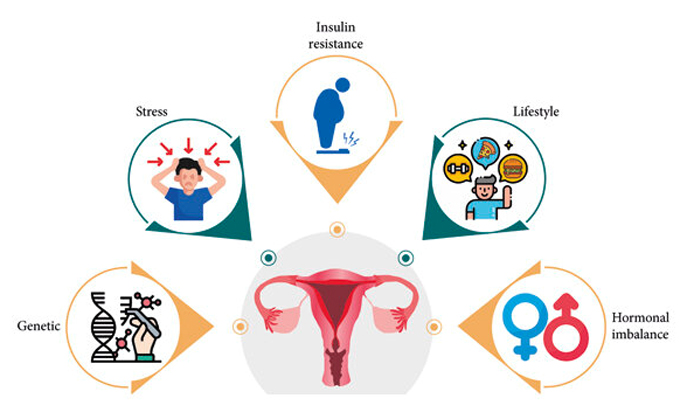
Strategies for Success
Navigating weight management when you have PCOS is a crucial step not just for our physical health but also for our mental and emotional wellbeing. Let's unpack why weight plays such a pivotal role in PCOS and discover ways we can manage it effectively.
Understanding the Link Between PCOS and Our Weight
Many of us with PCOS find ourselves struggling more with weight, often centered around our abdomens. This ties back to insulin resistance, which not only prompts weight gain but also makes shedding those pounds extra challenging. This frustrating cycle can worsen our PCOS symptoms.
How Weight Impacts Our PCOS Symptoms?
Carrying excess weight intensifies many PCOS symptoms:
● Hormonal Imbalances: More
body fat can increase androgen levels, leading to tougher battles with hair
growth, acne, and hair loss.
● Menstrual Irregularities: Our
weight can throw our menstrual cycles off track, a common struggle in PCOS.
● Metabolic Risks: Higher body weight increases our risk of developing further issues like type 2 diabetes and high blood pressure.
Strategies for
Effective Weight Management
- Tailored Dietary Approaches:
○ Choosing Low Glycemic Index Foods: These
foods help in keeping our insulin levels balanced and managing our weight
effectively.
○ Balancing Our Meals: We strive
for a healthy mix of carbs, proteins, and fats to maintain energy and manage
cravings.
○ Practicing Mindful Eating: By paying attention to what and how much we eat, we can avoid overeating and foster a healthier relationship with food.
- Consistent Physical Activity:
○ Staying
active is key. Mixing aerobic exercises with strength training can help reduce
insulin resistance and support our weight loss efforts.
○ Keeping our workouts diverse keeps things interesting and benefits different parts of our body and health.
- Lifestyle Tweaks:
○ Managing Stress: Stress can
magnify our PCOS symptoms and affect our weight. Engaging in yoga, meditation,
or other relaxation methods can help keep stress at bay.
○ Ensuring Quality Sleep: A good night’s sleep is crucial. It helps regulate our hormones and supports our metabolism, aiding in weight management.
- Seeking Medical Guidance:
○ Sometimes,
we might need a little extra help. Medications like Metformin can improve our
insulin sensitivity and aid in managing our weight.
○ Regular visits to a specialist who understands PCOS can ensure our treatment plan is on track and adjusted according to our body’s responses.
Building a Supportive Network
Managing PCOS and weight issues is tough but remember, we’re not
alone. With support from healthcare providers, nutritionists, and fellow PCOS
fighters in support groups, we can share our struggles, learn from each other,
and hold each other accountable.
Weight management with PCOS is more than just a numbers game. It’s about crafting a lifestyle that not only reduces symptoms but also enhances our overall quality of life. It’s about personalizing our approach and continuously adapting it to fit our changing needs. Together, let's embrace these strategies and support each other in this journey towards health and balance.




















